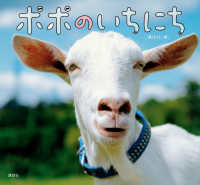Full Description
For almost two millennia, the island of Ireland has continued to have an impact on European and English-speaking Christianity and culture out of all proportion to its size and position.
This volume looks at key Irish figures, beyond lawyers and judges, whose ideas have impacted on the way law is conceived, conceptualised, and practised. The work consists of four Parts, each corresponding to a distinct historical phase. During the Early Mediaeval Period, Christian influence was visible both in Ireland's brehon legal system and in the treatises which Irish monks wrote on subjects such as the law of war and how to rule as a Christian prince. In the post-mediaeval period, the Protestant Ascendancy required defenders of the new settlement, whose ideas would have ramifications for the colonisation of the New World. We also find Ireland producing thinkers of international stature such as Archbishop James Ussher, Bishop George Berkeley, and Edmund Burke, who set a trend of Irish influence throughout the English-speaking world. The struggle for independence in the nineteenth and early twentieth centuries produced the towering figures of Daniel O'Connell, Edward Carson, and Eamon de Valera, as well as Patrick Pearse, the lodestar of the Easter Rising in 1916. In the twentieth century, great Irish men and women who influenced English-speaking culture include C.S. Lewis, James Joyce, Richard O'Sullivan KC, and Herbert McCabe. They show the enduring importance of a commitment to reason and a desire for virtue against the backdrop of the conflicts, both domestic and international, which impacted Ireland. With contributions drawn from Irish, British, and North American scholars and lawyers, the diversity of international and methodological perspectives is a key strength of the volume.
The book will appeal to scholars, lawyers, and students interested in the history of ideas, the interplay between religion and law, and Ireland as a place of contestation, experimentation, and generation of new ideas.
Contents
List of Contributors
Acknowledgements
Introduction
David H. McIlroy
Part I
Ireland before the Anglo-Norman Invasion
1. Adomnán of Iona (642-704): The Law of the Innocents
James W. Houlihan
2. The Political and Legal Thought of Sedulius Scottus' De Rectoribus Christianis (On Christian Rulers) (fl.840-860)
Noémi Farkas
Part II
Ireland in the time of the Protestant Ascendancy
3. Sir John Davies (1569-1626): Law, Church, "Commonwealth" and "Empire"
Robert Armstrong
4. English Law and Irish Religion in the Early Seventeenth Century: The Case of Sir Thomas Ryves (1583-1652)
Alan Ford
5. Of Canon Law and Kings: The Legal Thought of James Ussher (1581-1656)
Samuel L. Bray and D. N. Keane
6. George Berkeley (1685-1753) on Obedience and Natural Law
Kenneth L. Pearce
7. Edmund Burke (1729-1797): Student of the Common Law
Samuel Burgess
Part III
The Struggle of Irish Independence
8. Liberation through Law: Daniel O'Connell (1775-1847)
Patrick Geoghagen
9. The Authority of Tradition: John Henry Newman (1801-1890) and Legal Theory
Michael P. Moreland
10. Edward Carson (1854-1935): Nostalgia, Identity, and the Justification of Violence
Clare O'Hare
11. In the Shadow of Patrick Pearse (1879-1916): a Partial Biography of the 1937 Constitution of Ireland
William Olhausen
12. Soldier, Revolutionary, Statesman, Lawgiver: An Essay on the Constitutional Thought of Éamon de Valera (1882-1975)
Conor Casey
Part IV
Irish Intellectuals in the Twentieth Century
13. James Joyce (1882-1941) as a Great Irish Christian Jurist
Nicholas J. McBride
14. Richard O'Sullivan QC (1888-1963): Chronicler of the Common Law
David H. McIlroy
15. Charles McQuaid (1895-1973) on the Duties of a Catholic Democracy
Leonard Taylor
16. C.S. Lewis (1898-1963) on Natural Law and Retribution
Micah J. Watson
17. Left of Legalism: Herbert McCabe (1926-2001) on Law and its Limits
James Chegwidden








